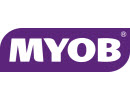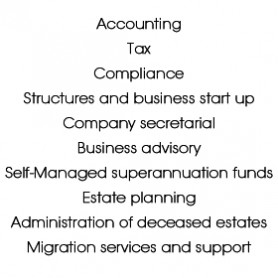From 1 July 2017 the removal of the 10% maximum earnings condition means you may be eligible to claim a personal super contributions deduction for the 2018 tax year.
What has changed?
- In 2016–17, an individual (mainly those who are self-employed) could claim a deduction for personal super contributions where they met certain conditions. One of these conditions is that less than 10% of their income is from salary and wages. This is known as the 10% maximum earnings condition.
- Effective 1 July 2017, the 10% maximum earnings condition was removed for the 2017-18 and future financial years ie. This means most people under 75 years old can claim a tax deduction for personal super contributions (including those aged 65 to 74 who meet the work test).
- This change improves the flexibility of the super system so that more Australians can use their concessional contributions cap.
If eligible you need to:
- make personal (after tax) super contributions directly to your super fund before 30 June 2018, if you haven’t already contributed this financial year
- give your fund a Notice of intent to claim or vary a deduction for personal super contributions
- obtain acknowledgement from your fund of your notice of intent before you lodge your 2018 tax return.
Eligibility rules
You can claim a deduction for personal super contributions made on or after 1 July 2017 if:
- have not already made concessional contributions up to the maximum that is allowed under the cap ($25000)
- you made the contribution to a complying super fund or a retirement savings account that is not a
- Commonwealth public sector superannuation scheme in which you have a defined benefit interest
- CPF or other untaxed fund that would not include your contribution in its assessable income
- super fund that notified the ATO before the start of the income year that they elected to treat all member contributions to
- the super fund as non-deductible, or
- the defined benefit interest within the fund as non-deductible
- you meet the age restrictions
- you notify your fund in writing of the amount you intend to claim as a deduction
- your fund acknowledges your notice of intent to claim a deduction in writing.
Work test
There is also age related conditions under which your super fund can accept your contributions. If you are under 65 years old when you make a contribution, you don’t need to satisfy the work test in order for your fund to accept the contribution from you. Once you turn 65; you must satisfy the work test in order for your super fund to accept a contribution for which you can claim a deduction.
If you are 65–74 years old at the end of the income year in which you made the contribution, you need to satisfy a work test in each financial year that you make a contribution in order for your fund to accept the contribution for which you can claim a deduction. To satisfy the work test, you must work at least 40 hours during a consecutive 30-day period each financial year in order for your fund to accept a personal super contribution for which you can claim a deduction.
Notice of intent
If you are eligible and want to claim a tax deduction, you need to complete a Notice of intent to claim a deduction form and send it to your fund within the required time frame. You can get this from your fund or from our website.
You will need to receive an acknowledgement from your fund before you lodge your tax return for the relevant year. Then you can claim a deduction in your tax return for the contributions you made.
A notice of intent is only valid if you are still a member of your fund, your fund still holds the contribution, and your fund has not started paying a super income stream using any of the contribution.
If you give your fund a notice of intent after you have rolled over your entire super interest to another fund (closed your account) or withdrawn your entire super interest (paid it out of super as a lump sum), your notice will not be valid. This means you will not be able to claim a deduction for the personal contributions you made before the rollover or withdrawal.
If you have partially rolled over or withdrawn your super interest (which included the contribution you made), your notice will not be valid for the entire contribution. You can only validly deduct a proportion of your contribution that remains in the fund.
Concessional contributions cap
The contributions that you claim as a deduction will count towards your concessional contributions cap. If you exceed your cap, you will have to pay extra tax and any excess concessional contributions will count towards your non-concessional contributions cap.









